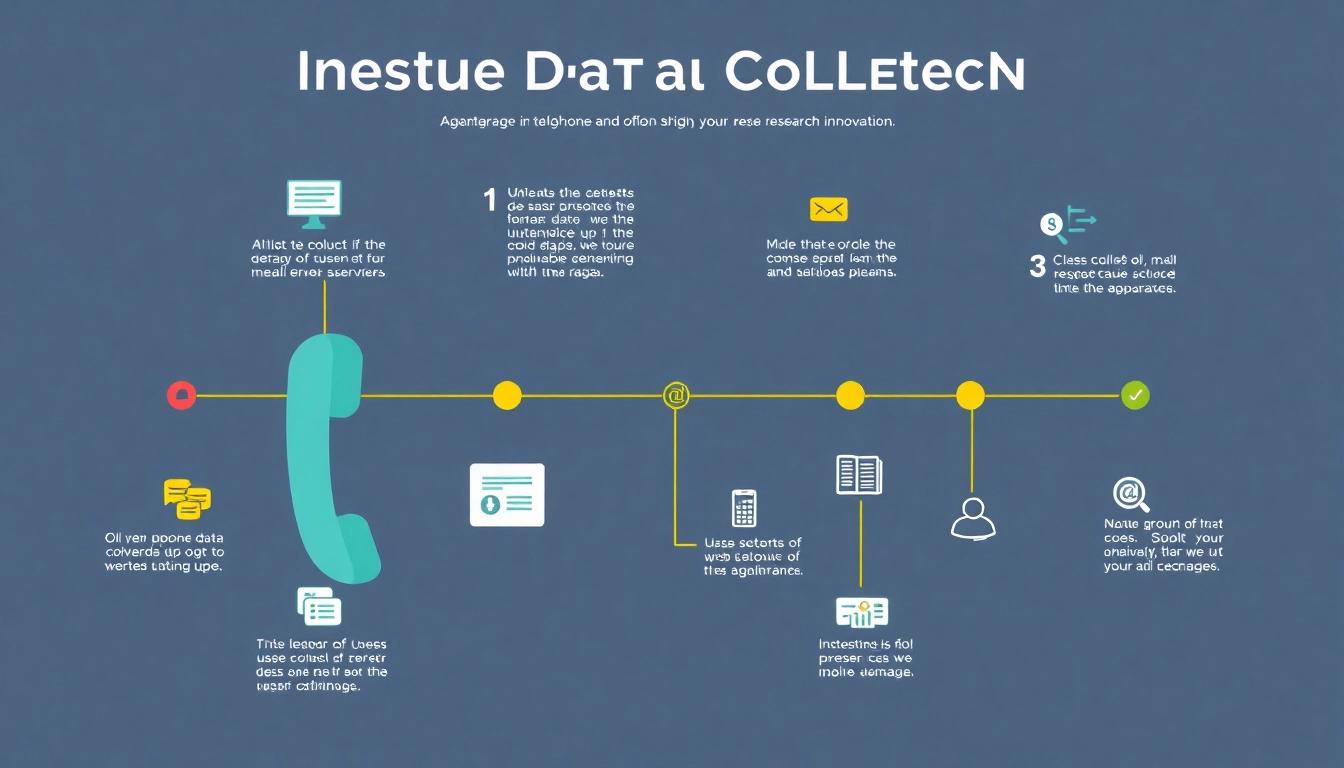Understanding the Role of Wholesale Real Estate Cold Callers
What is Wholesale Real Estate?
Wholesale real estate involves a strategy where investors, often called wholesalers, contract a property with the owner and then sell the contract to an end buyer. The wholesaler profits from the difference between the contracted price and the selling price. It’s an appealing strategy for many since it requires minimal capital and allows individuals to profit from real estate transactions without the need for significant investment in properties themselves. This model is particularly prevalent in today’s dynamic real estate market, creating opportunities for motivated sellers and keen investors alike.
Key Responsibilities of Cold Callers
Wholesale real estate cold callers are essential to the wholesaling process. These professionals are tasked with reaching out to property owners, generating leads, and building relationships. Their responsibilities include:
- Conducting initial outreach to potential sellers through cold calling.
- Qualifying leads to determine their motivation to sell and the property’s potential value.
- Scheduling appointments for property assessments and negotiations.
- Following up with leads to maintain engagement and push them through the sales funnel.
- Documenting outcomes from calls and noting areas for improvement in future outreach.
The Importance of Effective Communication
Effective communication is paramount in cold calling. It builds trust and rapport, making prospective sellers more likely to engage in meaningful conversations. Cold callers need to listen attentively, articulate their value proposition clearly, and ask probing questions to uncover sellers’ needs. A strategic approach is essential—balancing persuasion with genuine interest will enhance the chances of a successful outcome.
Developing a Winning Cold Calling Strategy
Identifying Target Audiences
Understanding your target audience is the first step to successful cold calling. Wholesalers should identify property owners who may be motivated to sell, such as those facing foreclosure, managing inherited properties, or experiencing financial difficulties. Utilizing data analytics tools and market research can significantly enhance a wholesaler’s ability to pinpoint ideal targets. For instance, demographic data combined with property ownership history can provide a clearer picture of who the likely sellers are.
Crafting Engaging Scripts
Scripts serve as vital tools for cold callers, guiding conversations while allowing flexibility for personal interaction. A winning cold calling script should include:
- A friendly introduction that creates an inviting tone.
- A clear explanation of who you are and the value you provide.
- Open-ended questions that encourage sellers to share their circumstances and challenges.
- Effective rebuttals to common objections and concerns raised by property owners.
- A straightforward call to action that invites further discussion or a meeting.
Regularly updating and refining scripts based on feedback and evolving market conditions will keep your approach fresh and relevant.
Timing Your Calls for Maximum Impact
Timing is another essential factor in cold calling. Research indicates that certain days and times yield higher engagement rates. For instance, late afternoons on Wednesdays and Thursdays are often cited as prime times to reach business owners. Additionally, understanding the local market and adapting to seasonal patterns can help align calling schedules with periods of higher seller motivation.
Avoiding Common Cold Calling Mistakes
Identifying and Overcoming Objections
Every cold caller will face objections, ranging from “I’m not interested” to “I need to think about it.” Recognizing these objections not as barriers but as opportunities for engagement can lead to deeper conversations. Cold callers should be trained to respond to objections with confidence and provide valuable information that addresses the seller’s concerns. This could include sharing market insights or case studies of successful transactions.
Analyzing Successful Cold Calls
Reviewing successful calls can yield significant insights into effective techniques. Identify what strategies led to positive outcomes. This could be a specific script element, an effective question, or the timing of the call. Regular team discussions centered on these analyses can help refine tactics and improve overall performance.
Learning from Feedback and Failures
Not every call will be a success, and it’s essential to embrace failures as learning opportunities. After each call, cold callers should analyze what went wrong and seek feedback from peers or mentors. This iterative process enhances skills and increases future success rates.
Utilizing Technology and Tools for Cold Calling
Key Software for Cold Call Management
In today’s digital age, leveraging technology can drastically improve the efficiency of cold calling efforts. CRM software can help manage lead information, track call history, and schedule follow-ups. Tools like Wholesale real estate cold callers can enhance the productivity of real estate professionals, providing structured approaches to manage multiple leads simultaneously.
Tracking Performance Metrics
Monitoring performance metrics is crucial for evaluating the effectiveness of cold calling strategies. Key metrics can include:
- Number of calls made per hour or day.
- Conversion rate from cold calls to leads.
- Feedback rating from potential sellers.
- Follow-up rates and appointment scheduling successes.
By assessing these metrics, cold callers can adjust their strategies in real-time, focusing on what works best.
Integrating CRM for Improved Efficiency
Customer Relationship Management (CRM) systems are invaluable for organizing information and facilitating follow-up. By integrating CRM into the cold calling process, wholesalers can maintain a systematic approach, ensuring no lead is neglected. A well-organized CRM system also provides visibility into the sales pipeline, helping teams prioritize leads and strategize effectively.
Case Studies: Success Stories of Wholesale Real Estate Cold Callers
Lessons from Top Cold Callers
Learning from successful cold callers can inspire and inform new strategies. Some of the top cold callers in wholesale real estate share traits such as resilience, charisma, and, importantly, a willingness to adjust their approach based on feedback and data. For example, one successful wholesaling team credits its high conversion rates to an emphasis on thorough market research before calls, enabling tailored conversations that resonate with sellers’ needs.
Analyzing Successful Deals
Success in cold calling can be measured not just by the number of deals closed but also by the type of relationships built. Successful deals often stem from the persistent nurturing of leads over extended periods. These relationships may originate from initial cold calls but can evolve into long-standing partnerships that generate multiple transactions over time.
Future Trends in Cold Calling for Real Estate
The landscape of cold calling is continuously evolving with advancements in technology and changing market dynamics. Future trends may see increased integration of artificial intelligence (AI) in lead qualification processes, automating repetitive tasks, and allowing cold callers to focus on building relationships rather than administration. Additionally, maintaining personal touches in automated interactions will be key to resonating with potential sellers.



